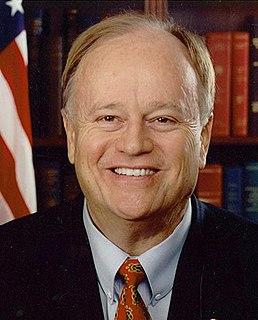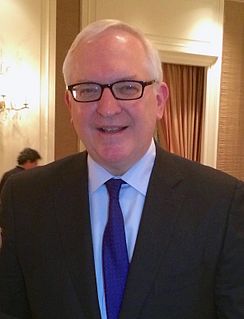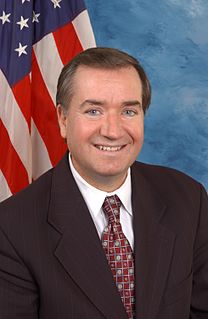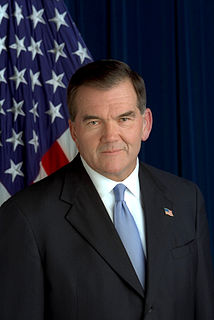A Quote by Max Cleland
Our mission is to go after Al Qaeda, not the Taliban. Right now, they are in Pakistan, not Afghanistan. We should go after them wherever they are.
Related Quotes
Some Pakistanis fought for the Taliban. Pakistani extremist groups provided infrastructural support to Al Qaeda. There was a coming and going of Al Qaeda militants and leaders between Afghanistan and Pakistan for several years. All that has really happened is that Al Qaeda has escaped from Afghanistan come into Pakistan, got in touch with their contacts and friends in these extremist groups, which then provided them with safe houses, cars, and not just in the border areas but also in the cities. Rooting out Al Qaeda in Pakistan now is where the main battle is being fought.
They [people of Afghanistan] didn't want Al-Qaeda in their country. They didn't appreciate the Taliban taking control. But they really have an incredible amount of dignity. And by that, they are grateful for America's help in ridding them of the Taliban. The average, ordinary person is glad that their daughter can go to school now. There's no public executions, no banning of soccer games. The difference is, they're appreciative, but they don't want any prolonged military presence of the United States there.
There are no barriers to entries. Think of this as Linux in terms of software. Anyone can have part of the operating system so long as you pledge allegiance to the ideas. Previously, if you wanted to join al Qaeda, you had to travel to an al Qaeda safe haven, probably in northern Pakistan or Afghanistan. Now all you have to do is get a gun, choose a target, and carry out an attack.
Look what happened with regard to our invasion into Afghanistan, how we apparently intentionally let bin Laden get away. That was done by the previous administration because they knew very well that if they would capture al Qaeda, there would be no justification for an invasion in Iraq. There’s no question that the leader of the military operations of the U.S. called back our military, called them back from going after the head of al Qaeda.
Remember back then we thought about al Qaeda in Afghanistan and Pakistan and a few other places? well, we've seen al Qaeda metastasize. It is now a global scourge. And you have the ascendancy of ISIL. The combination of those two groups -- their appeal to the lone wolfs and we see them acting in Belgium and in France and in Canada and the United States so the threat factors and the nature of the threats are far more complicated and far more serious today than on September 12, 2001.
Pakistan always seems to have a lot of political complexities and political challenges. But Pakistan is important for a number of reasons. Primarily, it is a nuclear power. And if, in fact, al Qaeda and Taliban, which are in Pakistan and causing a lot of tragedies and deaths in Pakistan - if they would ever somehow have real influence and control of that government, then we [world] really have a problem.
Pakistan is alarmed by the rising Indian influence in Afghanistan, and fears that an Afghanistan cleansed of the Taliban would be an Indian client state, thus sandwiching Pakistan between two hostile countries. The paranoia of Pakistan about India's supposed dark machinations should never be underestimated.


































